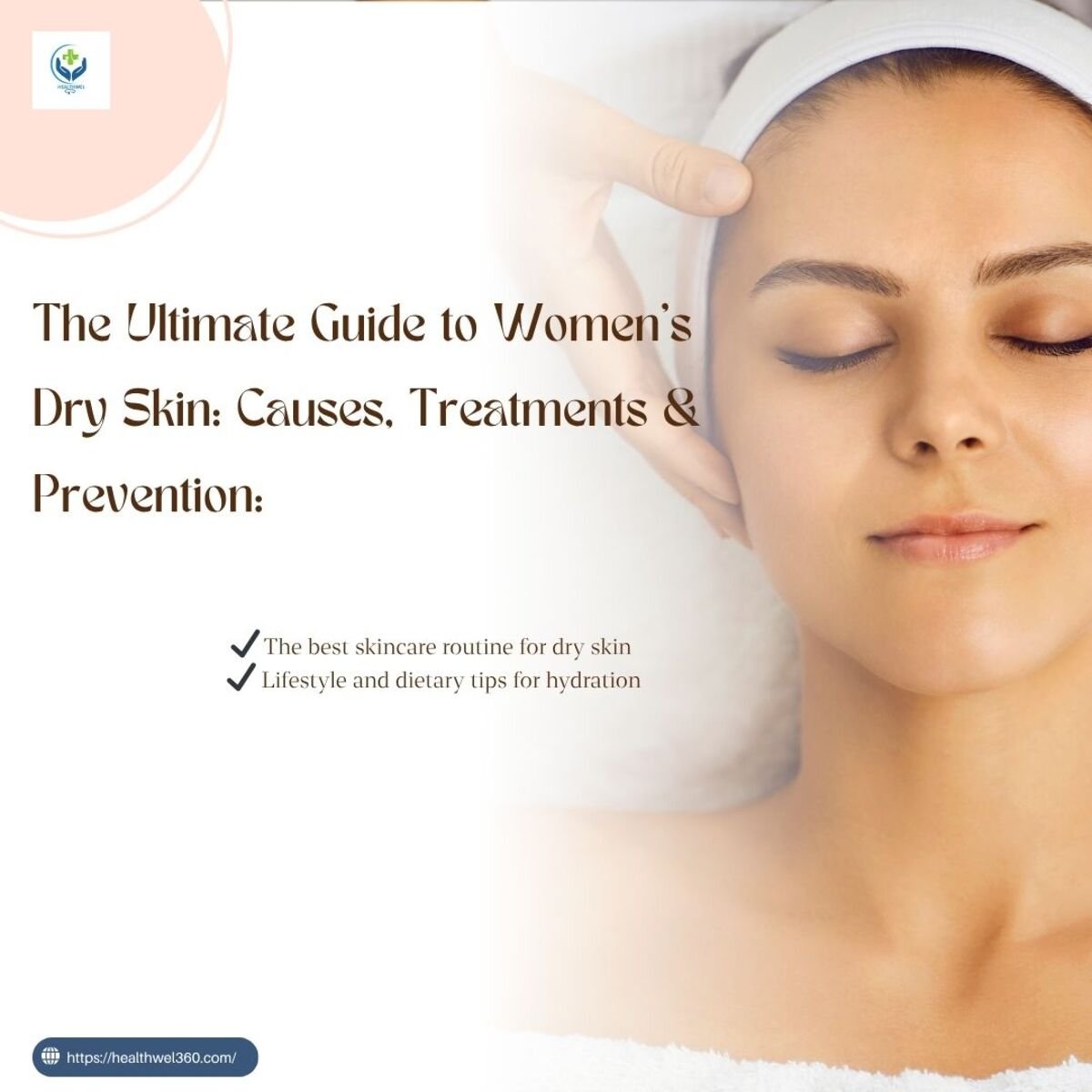The Ultimate Guide to Women’s Dry Skin: Causes, Treatments & Prevention Dry skin is a common yet frustrating issue that affects millions of women worldwide. Characterized by tightness, flakiness, redness, and even cracks, dry skin can lead to discomfort and premature aging if not treated properly.
In this comprehensive guide, we’ll explore:
✔ What causes dry skin in women?
✔ How to identify different types of dryness
✔ The best skincare routine for dry skin
✔ Lifestyle and dietary tips for hydration
✔ When to see a dermatologist
Whether you’re dealing with seasonal dryness, hormonal changes, or chronic skin conditions, this guide will help you restore and maintain a healthy, glowing complexion.
Chapter 1: Understanding Dry Skin in Women
What Is Dry Skin?
Dry skin (xerosis) is the result of inadequate moisturization of the corneum stratum, which is the skin’s outermost layer. This leads to:
- Tightness
- Rough texture
- Flaking or peeling
- Itchiness
- Fine lines and cracks
Why Is Dry Skin More Common in Women?
Women’s skin tends to be thinner and more sensitive due to:
- Hormonal fluctuations (menstruation, pregnancy, menopause)
- Lower sebum production compared to men
Types of Dry Skin
- Environmental Dryness – Caused by cold weather, wind, or low humidity.
- Contact Dryness – From harsh skincare, hot showers, or chlorine.
- Age-Related Dryness – Declining collagen and oil production after 30.
- Medical Conditions – Eczema, psoriasis, hypothyroidism, or diabetes.
Chapter 2: Causes of Dry Skin in Women
1.External Factors
Cold, dry environments: freezing air causes skin dehydration.
- Harsh skincare products – Sulphates, alcohol, and fragrances irritate.
- Over-exfoliation – Scrubs and acids can damage the skin barrier.
2.Internal Factors
- Hormonal changes (menopause, pregnancy, PCOS) reduce oil production.
- Dehydration – Not drinking enough water affects skin elasticity.
- Nutritional deficiencies – Lack of omega-3s, vitamin E, and zinc worsens dryness.
- Medications (retinoids, diuretics, acne treatments) can dry out skin.
3.Skin Conditions That Cause Dryness
- Psoriasis – Thick, scaly plaques.
- Hypothyroidism – Leads to rough, flaky skin.
Chapter 3: The Ideal Dry Skincare Program
Gentle Cleansing
❌ Avoid: Foaming cleansers with sulphate’s (SLS/SLES).
✅ Use: Creamy, hydrating cleansers like:
- CeraVe Hydrating Cleanser (with ceramides)
- La Roche-Posay Tolerance Dermo-Cleanser
Exfoliation (1-2x a Week)
Harsh scrubs worsen dryness—opt for chemical exfoliants:
- Lactic Acid (The Ordinary 5% + HA) – Hydrates while exfoliating.
Hydrating Serums & Essences
- Hyaluronic Acid (The Ordinary HA) – Binds moisture to skin.
- Niacinamide, an ingredient in Paula’s Selection 10% Booster, strengthens the skin barrier.
Moisturize Properly
- Day: Lightweight but hydrating (CeraVe PM, Neutrogena Hydro Boost).
- Night: Thick creams with ceramides & shea butter (La Roche-Posay Lipikar Balm).
Seal with an Occlusive (For Very Dry Skin)
- Vaseline (Petroleum Jelly) – Locks in moisture overnight.
- Aquaphor Healing Ointment – Great for cracked skin.
Sun Protection (Mandatory!)
Dry skin is more prone to sun damage. Use a moisturizing SPF:
- EltaMD UV Clear (SPF 46) – For sensitive skin.
- La Roche-Posay Anthelia Melt-in Milk – Hydrating & non-greasy.
Chapter 4: Dry Skin Lifestyle & Home Treatments
- Humidify Your Space
- Use a cool-mist humidifier at night (ideal: 40-60% humidity).
- Adjust Your Shower Routine
- Limit showers to 5-10 mins in lukewarm water.
- Pat dry (don’t rub!) and apply moisturizer immediately.
- Hydrate from Within
- Drink 8-10 glasses of water daily.
- Eat omega-3-rich foods (salmon, flaxseeds, walnuts).
- DIY Remedies for Dry Skin
- Honey & Yogurt Mask – Soothes and hydrates.
- Oatmeal Bath – Relieves itching (Aveeno Colloidal Oatmeal).
Chapter 5: When to See a Dermatologist?
Consult a doctor if you experience:
✔ Severe cracking or bleeding
✔ Persistent redness & itching (possible eczema)
✔ Thick, scaly patches (sign of psoriasis)
Conclusion: How to Keep Dry Skin at Bay
Dry skin doesn’t have to be a lifelong struggle. By:
✔ Using gentle, hydrating skincare
✔ Protecting your skin barrier
✔ Staying hydrated & eating well
✔ Seeking professional help when needed
